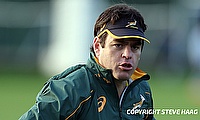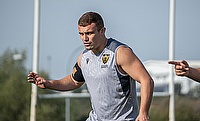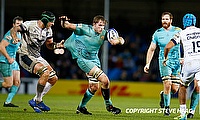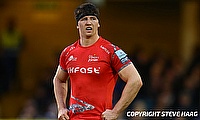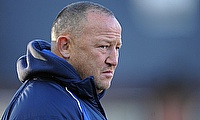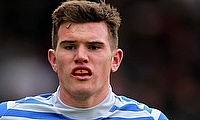Inside Wasps: How a Premiership Rugby Team sees player recruitment
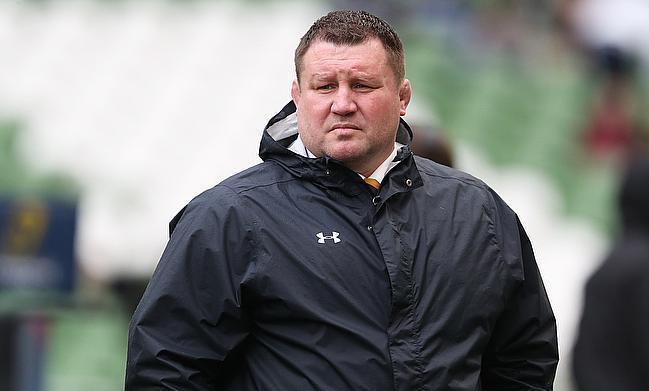
Wasps Director of Rugby Dai Young recruited heavily in the summer
©PA
TRU contributor Ben Mercer listened to a presentation by the Wasps Head of Recruitment Kevin Harman earlier in the week where he outlined the recruitment process that Wasps follow.
I don’t doubt that Kevin would have held back some of his secret sauce, but he said Wasps follow a list of priorities when looking at players.
- Talent - Without talent on the field, there’s not much point in looking at a player and this is paramount.
- Quality of person – Kevin said this was almost as important as talent. He made the point that for the fans, they only see what happens on a weekend. One player, no matter how brilliant, can break a team environment during Monday to Friday if they are not a good person. He stated that the Premiership’s highest paid player, Charles Piutau, ‘deserves’ his salary due to being a top player and person.
- Style of Play - do they fulfil a role within the team? If you play a dual playmaker system and are looking for another ball player, is there any point in signing a ‘crash’ centre? There might be if they’re really good! But if you’ll have to re-tool the whole team around them then it’s potentially not worth it.
- Injury record - how likely are they to stay fit? This figures into the value for money equation and here you can take a gamble (or not) depending on how you see that figuring out. You’re unlikely to pay a high salary for a guy who is regularly injured. He pointed to Jimmy Gopperth who fulfils all of their criteria; great player, great guy, versatile playmaker and kicker, rarely injured. They reward him with a new deal and then he doesn’t see a field for 18 months. Sometimes you get unlucky. Kevin then pointed to Alapati Leiua who having spent months injured, took a smaller deal at Bristol than he could have commanded previously and has subsequently played loads of rugby. Good for Bristol!
- Depth chart - Wasps have an NFL-style depth chart with all of their players and where they are currently ranked in each position, all the way down to the seventh choice tight head. When signing a player, they look to see where he’ll fit into this, taking into account his age profile in particular. They see no reason to have three 35-year-old flankers for instance and look for a range of ages in the squad.
- Salary - Kevin stressed that you can have everything but if the salary doesn’t fit, then you have to be prepared to walk away from a deal. Salary implications are not only year to year but last for the duration of the player’s contract, creating potential problems further down the line and particularly with older players.
Other interesting points that Kevin raised was that the average Premiership salary is £140,000 a year but actually below that figure, there weren’t many contracts to be had.
The lower salaries are largely academy players who are essentially low risk bets on their future promise. If they come good, then you have them on a below market rate for a couple of years. If they don’t then they don’t add much to your bottom line
This is also an NFL-style approach to contracts where franchises have figured that if you find a good rookie quarterback, he’ll be on a low contract for a few years, meaning that you have money to spread around your ‘skill’ positions. Rugby doesn’t have the same reliance on one player but teams are looking for value in a similar way; through good young players
Therefore, having a good academy is vital and Kevin pointed to how the two top sides Saracens and Exeter are the two teams getting great value from their youth setups.
This is a Talebbian ‘barbell’ strategy in effect; signing low cost players who are low risk on the one end and high value, top players at the other. It means teams are seeing less value in the middle ground and either want pure value or demonstrated game changing quality. Bear in mind, too, that there are two marquee players who are off cap meaning that the two highest salaries don’t affect this average figure.
The other way this applies to Wasps is in their recent recruitment of Championship players and Kevin mentioned that Michael Le Bourgeois has done really well for them, having been given an opportunity through injury. Championship players are similarly low risk bets; they cost less, are hungry for an opportunity and will command lower salaries than established players.
Interestingly, he talked about pitching players and what Wasps had to offer in particular. He said that they had recent and historical success to point to, a new training ground on the way, a great stadium in the Ricoh and pleasant places to live in the area.
Unless you’re a team that can guarantee winning or are offering the opportunity to live in London, Kevin believes that teams were all relatively similar in terms of what they can offer away from the field and that then it comes down to the background and preference of the player in choosing a location.
Finally, they have obviously recently lost Christian Wade to the NFL to whom he simultaneously wished the best of luck while expressing hope that they would see him back in a Wasps shirt in the future.
At the end of the day, talent trumps everything else and while it’s painful to see Wade go, Wasps have an eye on how they can replace him. Player recruitment is a year-round job and you have to be ready to move at a moment's notice, meaning that statistics and performances from around the world are constantly pored over to see where the next big thing might come from.


